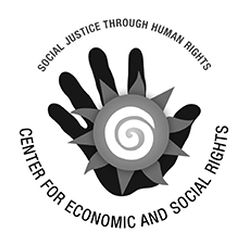By Alana Dave, International Transport Federation (ITF)
Urban transport is a sector where the industrial and the political are very closely linked. Public transport is an essential service relied upon by millions of people globally. Public authorities are lead industry players in both their role as employers and political decision-makers. The sector has massive strategic importance in the economic and social life of cities. So for labour, the struggle for power is not only in workplaces with employers (private and/or public) but also in the public sphere where decision-making about the ownership, control, organization and financing of public services takes place. For many years, ITF affiliates have opposed the neoliberal model of privatization and deregulation, supporting public ownership and investment in infrastructure and operations, as well as democratic accountability in how public money is spent. It is recognized that this shift is now much more urgent given the climate crisis.
Urban transport unions occupy an important strategic position in cities. But their ability to win in industrial disputes has been seriously weakened and undermined by a massive offensive against unions and workers, including the ability to take strike action. The ITF is focusing on rebuilding industrial muscle in targeted cities and different transport modes, and at the same time positioning ourselves politically to fight for a public transport system that meets the needs of the majority of people as well as the environment. We are reclaiming the meaning of the ‘public’ in the interests of social and environmental justice, rather than markets and private profit.
OUR public transport should ensure:
- The needs and rights of millions of workers who rely on public transport for their jobs and keep public transport moving.
- The rights of public transport unions around the world who have built and improved the sector by negotiating better terms and conditions of employment for workers.
- The needs and rights of millions of informal workers who rely on providing public transport for their livelihoods.
- The needs and rights of millions of ordinary people who rely on public transport to move around cities.
- The needs and rights of millions of ordinary people who still do not have adequate access to public transport.
- The needs and rights of discriminated or marginalized groups such as women, elderly people, young people and people with disabilities.
What are our goals? We aim to build union strength across integrated public transport systems, and strengthen organizational and employment rights for workers and unions. In the long term, we aim to win alternative models of public transport based on decent work and democratic public ownership. Not everyone has a say in how public transport is run, and for whose benefit. Too often public transport planning does not include the views of the real experts – workers and passengers. Through organizing passengers and building strategic alliances, we will raise the visibility of workers and passengers’ stories, experiences and needs.
As Francisco Mora, President of the ITF affiliate SNTT in Columbia says:
“I believe we are not just transport workers - above all we are all transport users – and so are our families and friends. We need to make sure that transport in big cities becomes more humane and that profit is not put before the needs of people.”
Alana Dave is “Our Public Transport” programme leader at the International Transport Federation (ITF).








